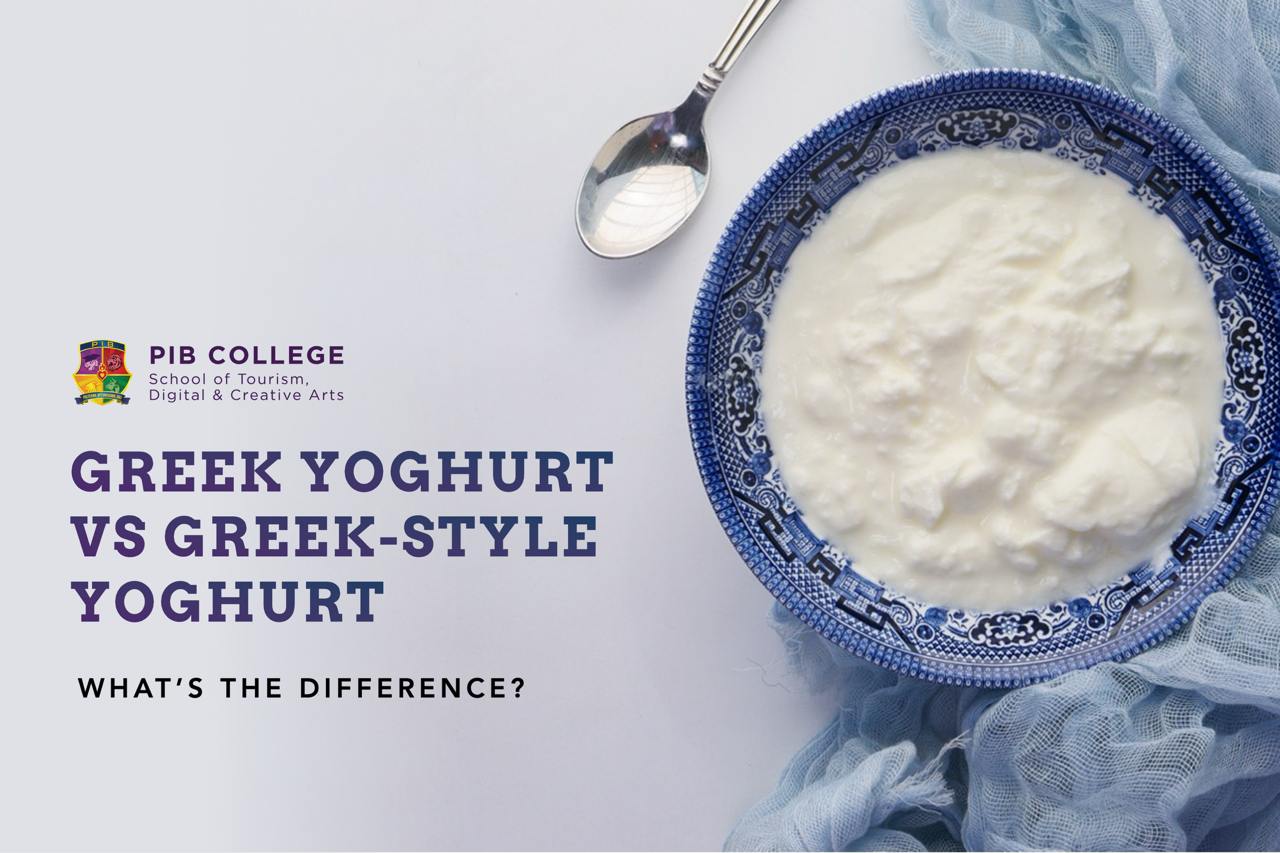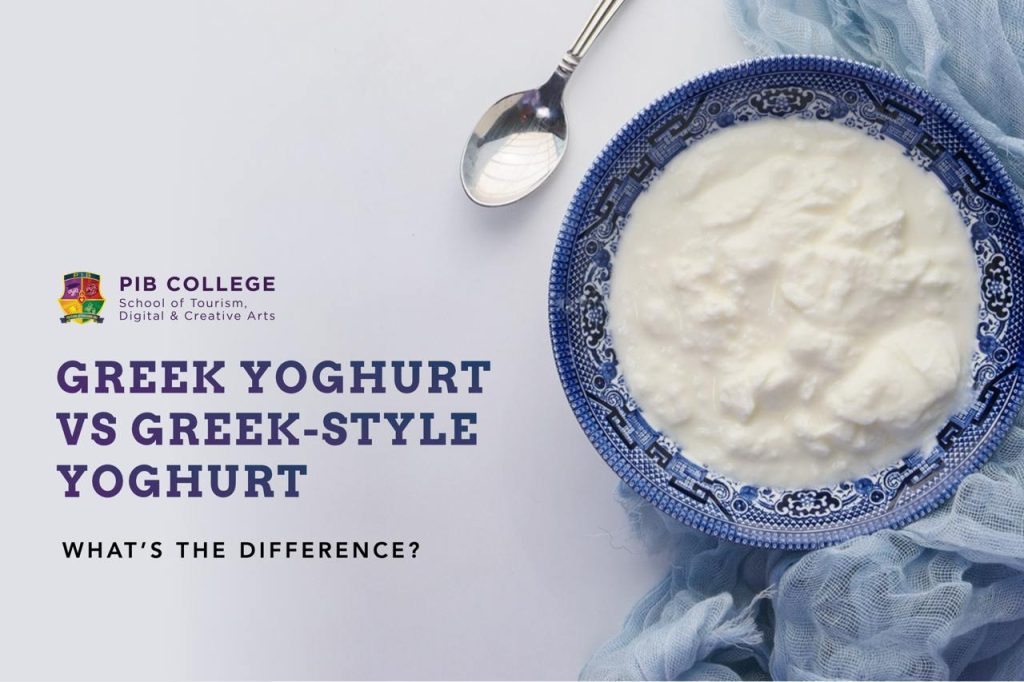
Have you ever come across Greek yogurt and Greek-style yogurt? At first glance, they might seem similar, but there are actually some significant differences! With the growing trend of healthy living, yogurt—especially Greek yogurt—has become a favorite food choice for many. So, what sets Greek yogurt apart from Greek-style yogurt? Let’s dive deeper!
1. What Is Greek Yogurt?
Greek yogurt is famous for its thick, creamy texture and tangier taste compared to regular yogurt. Its production involves straining out most of the whey, the liquid by-product of yogurt fermentation. This straining process results in a denser and creamier yogurt. Additionally, Greek yogurt contains more protein than regular yogurt, as the whey (which contains water and some protein) is removed.
Greek yogurt has a long history and is especially popular in Mediterranean countries like Greece and Turkey. It’s often used as a healthier substitute for sour cream or as a base for sauces. Its creamy yet light consistency makes it versatile for pairing with various dishes, from granola and honey to salad dressings.
2. What Is Greek-Style Yogurt?
Here’s where the confusion starts. Greek-style yogurt isn’t the same as authentic Greek yogurt. Although it may look similar, Greek-style yogurt is often not made using the same meticulous straining process as Greek yogurt. Instead, manufacturers typically add thickeners like cornstarch or gelatin to mimic the thick texture.
As a result, while Greek-style yogurt may resemble Greek yogurt in appearance, its taste and texture can differ slightly. Greek-style yogurt tends to have a milder and sweeter flavor, making it more appealing to those who prefer a less tangy and acidic yogurt compared to authentic Greek yogurt.
3. Characteristics: What’s the Difference?
Characteristic | Greek Yogurt | Greek-Style Yogurt |
Texture | Extremely thick, creamy | Thick, but less dense than Greek |
Flavor | Tangy, slightly sour | Milder, sweeter |
Production Process | Strained to remove whey | Contains added thickeners |
Color | Darker, richer | Brighter, due to added thickeners |
Additional Ingredients | Only milk and bacterial cultures | Gelatin or other thickeners |
4. Nutritional Comparison
When it comes to nutrition, Greek yogurt stands out due to its high protein content. The straining process removes much of the whey, reducing water, carbohydrates, and sugar while concentrating protein. In contrast, Greek-style yogurt, although similar in texture, often contains more sugar and less protein.
Here’s an average nutritional comparison (per 170g serving):
| Nutrient | Greek Yogurt | Greek-Style Yogurt |
| Calories | 100–120 kcal | 150–200 kcal |
| Protein | 10–15g | 5–8g |
| Fat | 0–10g | 2–12g |
| Carbohydrates | 5–10g | 15–20g |
| Sugar | 4–6g | 12–15g |
| Calcium | 15–20% of RDI | 10–15% of RDI |
So it’s clear that Greek yogurt is much higher in protein, making it a perfect choice for those seeking a healthy snack or looking to boost their daily protein intake. On the other hand, Greek-style yogurt may appeal more to those who prefer a sweeter and lighter treat while still being health-conscious.
5. Which One is Better?
From a nutritional perspective, Greek yogurt is undoubtedly superior, especially for those seeking high protein with low sugar. It’s an ideal choice for:
- Athletes or physically active individuals, as the protein supports muscle recovery.
- Low-carb dieters, since Greek yogurt has fewer carbohydrates.
- A healthier cream substitute in dishes due to its thick and creamy texture.
However, Greek-style yogurt also has its advantages. It’s generally more affordable and widely available in supermarkets. Its lighter taste might be more appealing to yogurt beginners or those who dislike the tanginess of authentic Greek yogurt.
6. Is Greek-Style Yogurt Good for Cooking?
A common question is whether Greek-style yogurt can be used in cooking like authentic Greek yogurt. The answer is yes, but with some differences. Because Greek-style yogurt is less dense, it might not deliver the same creamy results in baking or cooking. However, it works well for recipes like sauces or smoothies.
On the other hand, authentic Greek yogurt is far more suitable for various culinary applications, especially in baking. Its ultra-thick and creamy texture often serves as a healthier substitute for butter or oil in cakes, resulting in a moist and tender crumb.
7. Final Thoughts: Greek Yogurt vs. Greek-Style Yogurt
Are Greek yogurt and Greek-style yogurt the same? Definitely not. Despite their similar appearance and almost identical names, the production process, taste, texture, and nutritional content vary significantly.
Greek yogurt offers greater health benefits, especially for those prioritizing high protein and low sugar intake. Meanwhile, Greek-style yogurt might be a better choice for those who prefer a milder, sweeter taste at a more affordable price.
Whichever you choose, both Greek yogurt and Greek-style yogurt can be part of your healthy lifestyle. It’s all about selecting what best fits your needs and preferences!
Interested in learning more about food and nutrition? Or curious about mastering culinary techniques using different types of yogurt? This is your chance! At PIB College, the Culinary Arts & Gastronomy program will equip you with in-depth knowledge of the culinary arts. Don’t miss out—enroll now and enjoy exclusive benefits! Register today at [daftar.pib.ac.id].
Author: Stephanie Gunawan

